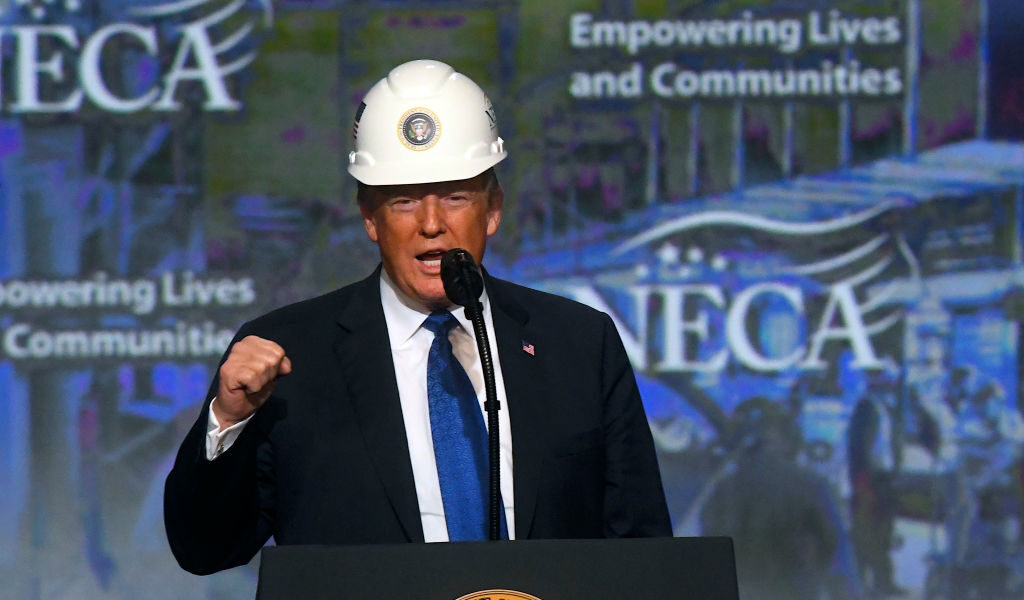Earlier this week, Donald Trump appeared in an interview on X with the company’s owner, Elon Musk. During the more-than-two-hour discussion, the former president praised Musk for firing employees at the company who went on strike, saying: “You’re the greatest cutter. I look at what you do. You walk in and say, ‘You want to quit?’ I won’t mention the name of the company but they go on strike and you say, ’That’s OK. You’re all gone.’”
These comments prompted immediate backlash from labour unions, including the United Auto Workers, which has filed a complaint with the National Labor Relations Board seeking an investigation into both Trump and Musk and contending that the discussion could intimidate workers from striking. The move comes one week after the union endorsed Trump’s rival, Vice President Kamala Harris, in the 2024 presidential election.
Trump’s comments were also a political own goal: they needlessly antagonised workers and unions at a time when he has been striving to make inroads with them. Notably, Trump has performed relatively well with union households in recent years, at least for a Republican. In his last two elections, he earned roughly 42% of these voters nationally — the highest level for any GOP nominee since George H.W. Bush in 1988 — and his support was equal or even higher in the three pivotal “Blue Wall” states.
Part of the reason for Trump’s growing appeal with union voters is likely that many of them are moderate or conservative and may not identify culturally with the Democrats. The Trump campaign is clearly aware of this too, saying that “there’s a disconnect between the political leadership of some of the labor unions and the working middle-class employees that they purport to represent.”
Trump has been trying to build on his past performance with these voters this cycle. In particular, he has been vying with Harris for a possible endorsement from the Teamsters, whose president, Sean O’Brien, gave a primetime speech at this year’s RNC in which he praised workers and excoriated corporate greed — something unimaginable at past Republican conventions. He also picked as his running mate J. D. Vance, who has tried to parlay his biography of growing up in poor and working-class communities to connect with voters who come from such backgrounds today. Vance and Trump have both eschewed traditional Republican orthodoxy on everything from entitlements to tariffs and wages to worker safety.
However, Trump also has a long and problematic history with workers. Famously, he routinely refused to pay workers at his properties what he owed them. He rose to prominence on a show where he was known for firing people. As president, he promised to veto bills raising the minimum wage and protecting workers’ right to organise on the job. And his National Labor Relations Board issued decisions making it more difficult for unions to win representation at non-union workplaces. Even after O’Brien’s words at the RNC, Trump used his own speech to, among other things, call for the firing of the UAW president.
Trump’s comments to Musk may serve as a reminder to workers of his past actions and make them think twice about pulling the lever for him. Indicative of this, O’Brien excoriated the remarks, saying: “Firing workers for organising, striking, and exercising their rights as Americans is economic terrorism.”
What makes Trump’s efforts to win union voters even more difficult is that Harris has had a strong relationship with organised labour throughout her career. She has already received endorsements from several of the country’s top labour unions and held early campaign events with the American Federation of Teachers and UAW. She has also contrasted herself with Trump by supporting striking workers and calling for an increase to the minimum wage.
So it remains to be seen whether Trump’s latest comments, notably geared toward white-collar tech workers, do anything to derail his overtures to the working class and union voters. A Fox News poll this week found Harris leading him among these voters by 12 points, 52–40, though this represents a decline for both candidates relative to 2020, indicating they each may have room to grow. But, at the moment, one candidate is clearly working to curry favour with them, while the other can’t seem to stop creating self-inflicted wounds.











Join the discussion
Join like minded readers that support our journalism by becoming a paid subscriber
To join the discussion in the comments, become a paid subscriber.
Join like minded readers that support our journalism, read unlimited articles and enjoy other subscriber-only benefits.
Subscribe